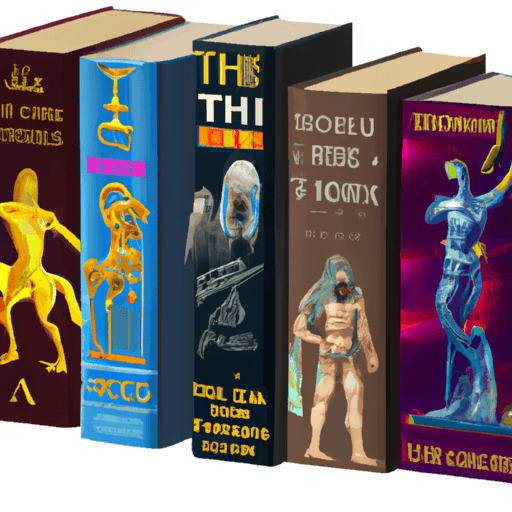Mythology's Influence on Modern Literature: A Detailed Analysis
Mythology has been a profound source of inspiration in literature. It is a world of epic adventures, tragic love stories, heroic endeavors, and human experiences. The influences of mythology are vividly seen across the canvas of literature, shaping the course of stories, evolving characters, and framing society's mental makeup.
The Influence of Mythology on Plotlines and Characters
Modern authors frequently sculpt their narratives and characters through mythological influences. For instance, consider J.K. Rowling's famed Harry Potter series. It's swarming with references to Greek mythology from the mythical creature ‘Cerberus’ represented as ‘Fluffy’, to character allusions such as ‘Phoenix’ and ‘Hermione.’
Similarly, Rick Riordan's Percy Jackson series springs directly from Greek mythology, where demi-gods - the children of gods and humans– are at the epicenter. Its characters, settings, quests are borrowed or adapted from ancient myths.
Mythology and its Influence on Literature Settings
Mythology lends fantastic settings to modern literature. The epic Lord of the Rings by J.R.R. Tolkien manifests Norse, Greek, and Christian mythology. The Middle Earth, with its varied creatures and geography, draws heavily from these mythological backgrounds.
Mythology's Impact on Themes and Motifs in Modern Literature
Myths have ushered in universal themes and motifs prevalent in modern literature. Themes of love, death, heroism, and the cosmic battle between good and evil draw directly from mythology. Novels like Neil Gaiman's American Gods play on these ancient motifs, bringing gods into a contemporary setting, thus, exploring the theme of clash between old belief systems and modernity.
Incorporation of Mythology Across Different Periods
Mythology has persistently surfaced in literature across different periods. Romantic period poetry, for example, borrowed liberally from Greek and Roman mythology. The Romantic poet John Keats was obsessed with the world of myth, often incorporating mythological characters and stories into his works, like in his famous poem Ode on a Grecian Urn.
In the modern period, James Joyce's Ulysses is a critical example, which is a nuanced reinvention of Homer's Odyssey.
Readers’ Perceptions and Interpretations of Modern Works
Unquestionably, mythology has influenced readers’ perceptions and interpretations. On one hand, it familiarizes the reader with the cultural underpinnings of a society, whereas, on the other hand, it allows the reader to draw parallels between myths and societal happenings.
Thus, mythology continues to have an enduring influence upon the realms of modern literature, creating a bridge between the ancient world and the world we live in today.

















Comments
Leave a Comment